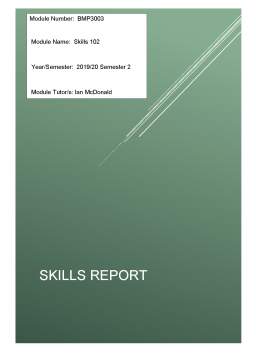Cuprins
- Introduction .2
- Importance of Academic Integrity ...3
- Fundamental Values .4
- Academic Misconduct ..6
- Implications of Academic Misconduct 7
- Conclusions and remarks 8
- Reference List .10
Extras din proiect
Introduction
According to Cambridge Dictionary (2020) integrity indicates the quality of having honest principles. Integrity is most of the cases related with what is ethic and/or morale. In other words, ‘’integrity means doing the right thing when nobody is watching’’ (McDonald, 2020). Concerns like who can contribute to the development of integrity, when is the perfect time-frame to begin construction/instalment of integrity or how integrity can be developed are related to development of notion of integrity thru module lectures, speeches and discussions.
Academic integrity, which is related to the academic environment, represent a commitment to the promotion of positive values and in the same time is the challenge taken by the staff to inoculate integrity in all learning facilities either we are talking about schools, colleges or universities (Pokhrel, 2018).
Just like any individual possess a certain number of rules that guides him to act in a specific way, same academic environment has its own moral policy defined by six values considered fundamentals: honesty, trust, respect, fairness, courage and responsibility (ICAI, 2014). Furthermore, ‘’Academic Integrity is an interdisciplinary concept that provides the foundation for every aspect and all levels of education’’ (Bretag, 2018, p.1). To go even further with the definitions, we can think that Academic Integrity means ‘’ values, behaviour and conduct of academics in all aspects of their practice’’ (Macfarlane et al., 2014, p.341).
The following report tries to explain the real importance of Academic Integrity in Higher Education and all the implications of any form of Academic misconduct.
Importance of Academic Integrity
In the new our digital era the Academic integrity looks like it has more vulnerabilities than ever and the expansion of the Internet is hold to blame for it (Carruthers, 2019). The continuous growth of the internet and the amount of information available to anyone these days it seems to encourage fresh starters in the academic environment to gather all the data needed for their assignments (Compton and Pfau,2008) but it is not encouraging to avoid mentioning the source used in developing their ideas leaving that to the personal choice. In the same time, we should not negligee the fact that Academic Integrity is based on values such as those nominated earlier. That is why the main reason we should care about and promote intensively the concept of Academic Integrity is because ‘’students are likely to become tomorrow’s leaders’’ (McCabe et al., 2012, p.9). They even go further by suggesting that students practicing unmoral actions will not ‘’reflect well on our shared future’’ (McCabe et al., 2012, p.9).
Gallant (2018) states that in order to be considered a ‘’truly academically successful’’ (p. 46) students must posses the mean, skills and acknowledgement regarding integrity. Having knowledge about Academic Integrity is what gives to our degree value (Marsh, 2007) and is pretty simple to determine that considering the fact that our future employers will value the people who know how to think, where to search solutions and to give credit to all potential sources.
It is concluded that universities, colleges and/or schools that present a lack of Academic Integrity are predisposed to major ethical issues (Bloomfield, 2005).
Bibliografie
Anderman, E. and Murdock, T. (2007). Psychology of academic cheating. 1st ed. Amsterdam: Elsevier Academic Press.
Bloomfield, I. (2005). Discussions of plagiarism and academic misconduct. The plagiarism resource cites, 17(2), p.178-184
Bretag, T. (2016). Handbook of academic integrity. 1st ed. Singapore: Springer Singapore.
Bretag, T. (2018). Academic Integrity. Oxford Research Encyclopedia of Business and Management, p.1-30.
Carruthers, J. (2019) Academic Integrity, 115(11/12)
Compton, J. and Pfau, M. (2008) Inoculating Against Pro-Plagiarism Justifications: Rational and Affective Strategies Journal of Applied Communication Research Vol. 36, No. 1, pp. 98-119
Cronan, T. P., Mullins, J. K. and Douglas, D. E. (2015) Further understanding factors that explain freshman business students’ academic integrity intention and behaviour: plagiarism and sharing homework, J Bus Ethics, 147, p.197-220
Fishman, T. (2014). The fundamental values of academic integrity (2nd ed.).
Gallant, T. B. (2017) Academic Integrity as a teaching & learning issue: from theory to practice, Theory into practice, 56(2), p.88-94
Gallant, T. B. (2018) Part-time integrity? Contingent Faculty and Academic Integrity, New directions for community colleges, 183
Macfarlane, B., Zhang, J., and Pun, A. (2012). Academic integrity: A review of the literature. Studies in Higher Education, 1-20
Marsh, B. (2007) Plagiarism : Alchemy and Remedy in Higher Education [Online] State University of New York Press. Available from : https://ebookcentral.proquest.com/lib/bolton/reader.action?docID=3407594 [Accessed 02 April]
McCabe, D.L, Trevino, L.K., and Butterfield, K.D. (2012), Cheating in College: Why Students Do It and What Educators Can Do about It, Johns Hopkins University Press, Baltimore
McDonald, I. [Prof.] (2020) Academic Integrity. Presented at: University of Bolton, Monday 3 February 2020
Oyekan, O. (2013). ACADEMIC INTEGRITY: Study & Guide. 1st ed. New York: Xlibris Corporation
Pokhrel, T., R. (2018) Need for developing integrity among young learners in schools. Journal of education and development, 8(15)
Rahman, I. and Sayed, Y. (2016). How to cope with academic integrity issues. 1st ed. Hamburg: Anchor Academic Publishing
Speight, J.G. (2016), Ethics in the University, [Online] John Wiley & Sons, Incorporated, Somerset. Available from : https://ebookcentral.proquest.com/lib/bolton/reader.action?docID=4659727 [Accessed 02 April]
University of Bolton (2020) Code of Policy and Procedures for Investigating and Resolving Allegations of Misconduct in Research 2020-21 [Online] Available from: https://www.bolton.ac.uk/assets/Uploads/CodeofPolicyandProceduresforInvestigationResolvingAllegations.pdf [Accessed 14 May 2020]
Preview document
Conținut arhivă zip
- Skills Report.docx
























